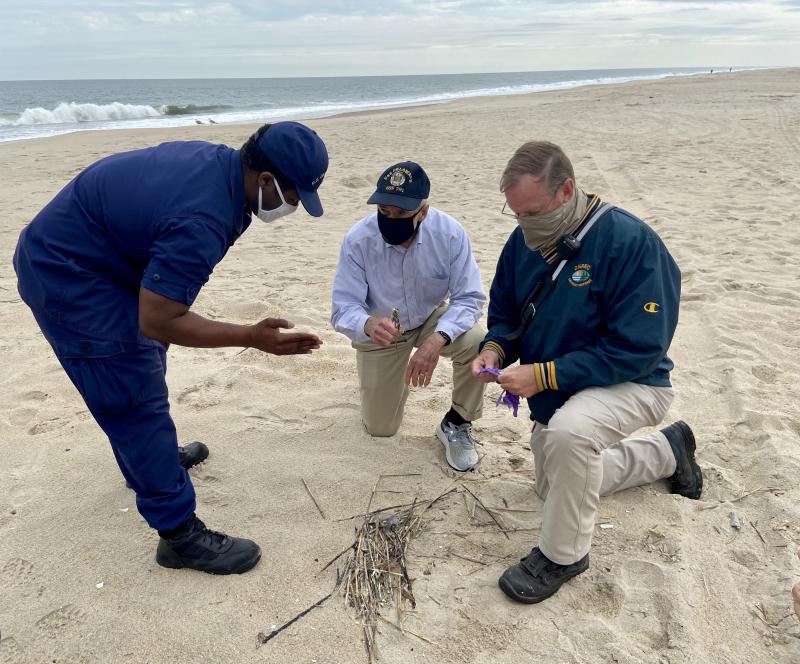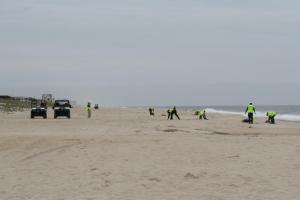Possible vessels identified, but no suspect yet in oil spill

Possible vessels have been identified, but a suspect has not yet been determined regarding the oil spill first reported at Broadkill Beach Oct. 19, officials said at an Oct. 27 briefing with Sen. Tom Carper at Tower Road Beach.
The ship found responsible for the spill will be held liable for the oil’s impact on the environment, including prosecution and cleanup costs, said U.S. Coast Guard Lt. Cmdr. Fredrick Pugh, federal incident commander for the response.
The federal Oil Spill Liability Trust Fund is providing initial funds allowing the Coast Guard to investigate and prosecute the case, and clean up materials, Pugh said.
Whether the spill was intentional or caused by mechanical failure is unknown, Pugh said, and the oil could be cargo, fuel oil that powers the ship, or a residual product aboard the vessel.
National Oceanic and Atmospheric Administration and Coast Guard officials are tracking commercial ships that were in the area to match characteristics of the oil found on the beach with samples taken from the vessels, he said.
NOAA satellite imagery analysis didn’t spot the spill in Delaware Bay, Pugh said, and no anomalies were found using sonar scans of the bay floor. This is not a high-sheen oil, he said; it is a heavy fuel oil that might be floating just below the water’s surface.
So far, 65 tons of oil and oily debris have been collected, enough to fill seven construction dumpsters, Pugh said, adding that a timetable has not been set on how long cleanup efforts or the investigation will take.
Oil has been reported as far south as Ocean City, said Department of Natural Resources and Environmental Control State Emergency Prevention and Response Chief Jamie Bethard. If it’s not all cleaned up, it could return next year, he said.
At Tower Road, oil is being deposited among debris along the wrack line at high tide, Bethard said. The tide recedes, leaving the oil deposits; when it rises again, the tide collects oily debris along the wrack line and pulls it back into the ocean.
“It’s never a good thing to have oil in the environment,” Bethard said. “But this is heavy oil, less toxic for animals. It will turn into an asphalt-type material.”
Removing oil from the sand is tedious but easier than when oil gets trapped in marsh vegetation, Bethard said. Drones have been used on the beach, he said, but the best way to locate oil is by walking or riding an ATV gator. Nearly 150 people are working in various capacities to clean up the spill, he said.
Bethard said responders are especially grateful to the Slaughter Beach Memorial Volunteer Fire Company, which he said opened its doors to help.
“It’s been a rallying community effort,” Bethard said.
Carper commended DNREC, the U.S. Coast Guard, Tri-State Bird Rescue and other environmental professionals for their swift action and ongoing coordination with cleanup efforts.
“I am continuing to monitor this situation closely as officials work to remove this oil and determine its source, and I will continue working in the Senate to support and protect our coastal communities and wildlife,” Carper said.
























































